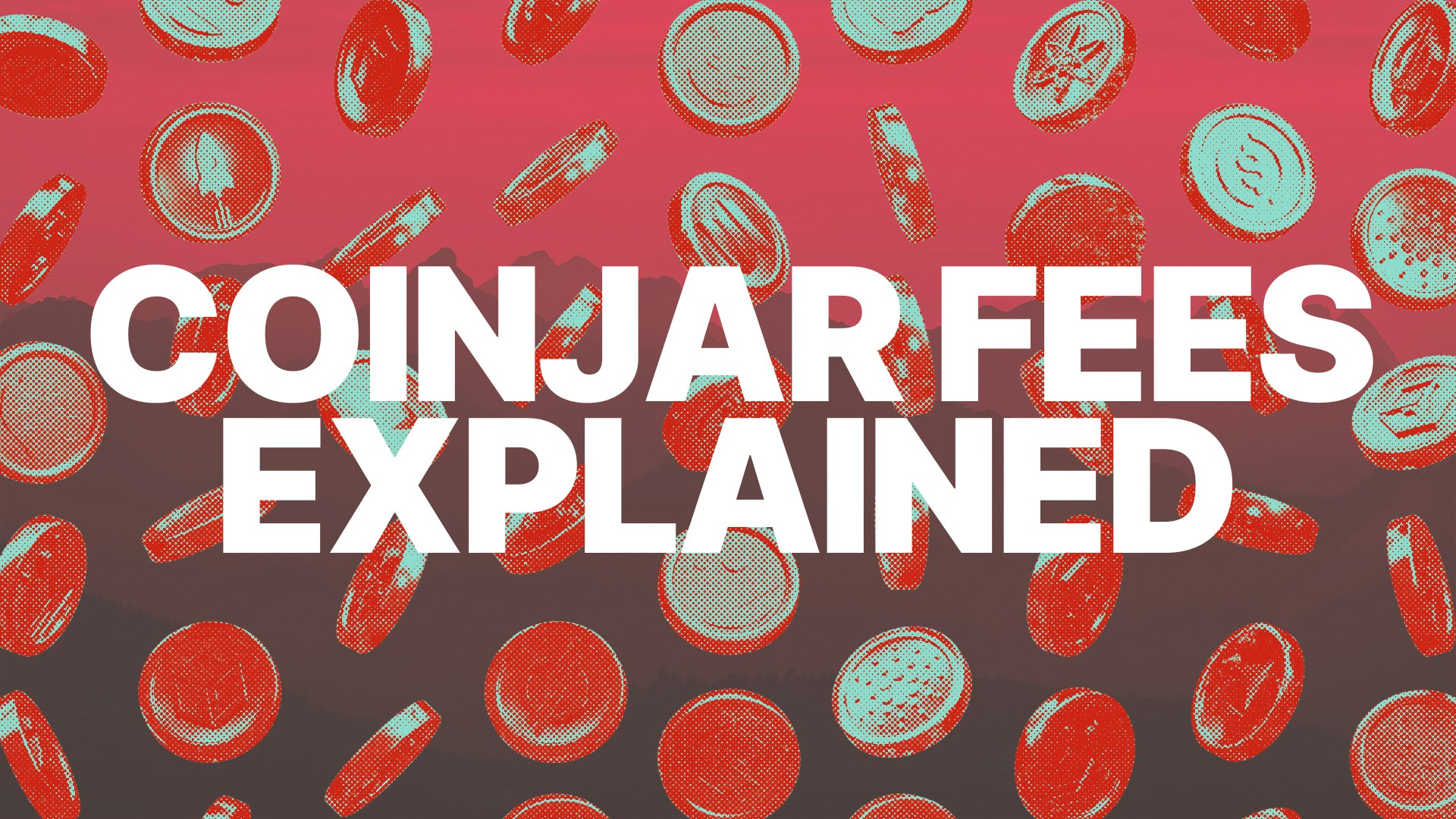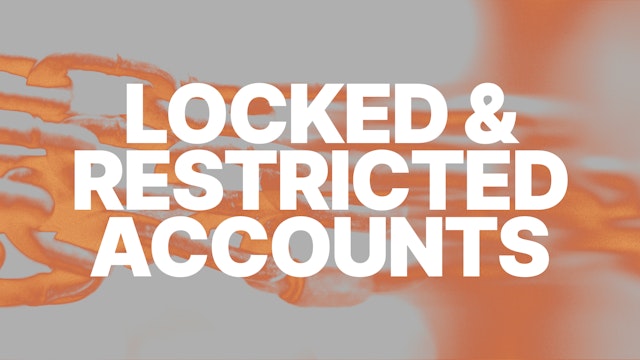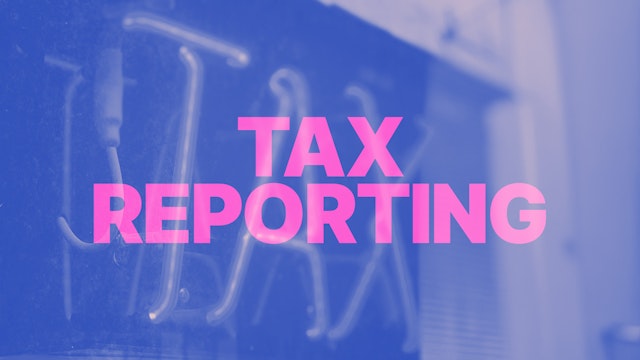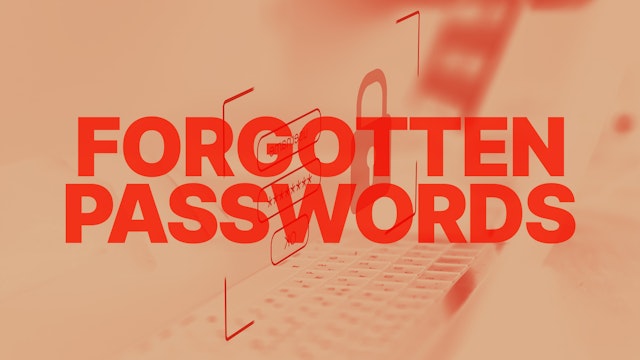CoinJar Fees: A Guide to Prices Incurred While Trading
Wonder what CoinJar fees are? Here is a breakdown of everything that you need to know when it comes to fees and spreads.
In this article...
- Some things on CoinJar are fee-free, while other things incur a charge
- It is important to know what fees and spreads are.
- Here is everything you need to know.

Navigating fees when using a crypto exchange like CoinJar can feel overwhelming, but it doesn’t have to be. This guide breaks down the fees you might encounter when depositing, withdrawing, trading, or sending cryptocurrencies on CoinJar, making it easy to understand what you’re paying for and why.
Fiat Deposits and Withdrawals: No Fees for Most Methods
When you deposit or withdraw fiat currencies like British Pound (GBP), Australian Dollar (AUD), or Euro (EUR) to and from your CoinJar account, you’re in luck, most methods are free! CoinJar will not charge you a fee to deposit or withdraw fiat, although, you should check with your bank.
However, if you dispute a deposit transaction or request an investigation with your bank (for any reason, including fraud), a dispute fee will apply. So keep this in mind when managing transactions.
Cryptocurrency Deposits: Free Across the Board
Good news for crypto enthusiasts: CoinJar doesn’t charge you to deposit cryptocurrencies to your account, whether you’re receiving funds from an external wallet or another CoinJar member. No hidden costs here! You may have to pay network fees though.
Buying with a Card and Recurring Buy: Convenience Comes with a Fee
If you’re looking to buy cryptocurrency quickly using a Visa or Mastercard, Recurring Buy and Buy With a Card options are convenient but come with fees:
-Buy with a Card (Visa/Mastercard, Apple Pay, Google Pay): 2% fee
-Dollar Cost Averaging with CoinJar’s Recurring Buy (Visa/Mastercard): 1% fee
Keep in mind that additional fees may be applied by your card provider. This is outside of CoinJar’s control and you should always check with your bank.
Trading Fees: A Flat Rate for Simplicity
When you convert between cryptocurrencies or between fiat and cryptocurrencies, CoinJar charges a straightforward 1% fee based on the transaction amount. This applies to:
-Converting fiat to cryptocurrency
-Converting cryptocurrency to fiat
-Converting one cryptocurrency to another
This flat rate keeps things predictable, so you always know what to expect when trading.
For advanced traders, CoinJar Exchange offers a highly competitive fee structure, ranging from 0% to 0.1%, designed to maximise value for high-volume transactions.
How CoinJar Sets Its Prices
There’s always a difference between the buy price and the sell price — this is called the spread.
-If you’re trading about £2,000, you’ll probably get the price you see.
-If you’re trading a lot more money, the gap (spread) between the buy and sell price might be bigger.
-If you’re trading a smaller amount, the gap might be smaller.
Sending and Receiving Cryptocurrencies: Network Fees Apply
Sending cryptocurrencies to another CoinJar member is free, but fees may apply if sending to yourself. Sending crypto to an external wallet may incur a dynamic network fee, which depends on:
-The cryptocurrency being sent
-The blockchain’s congestion level
-The transaction size
You can see the exact fee before confirming a transfer.
What are CoinJar Fees?
CoinJar keeps fees simple and transparent, with no charges for most fiat and crypto deposits, a flat 1% trading fee, and dynamic network fees for external crypto transfers.
Instant Buy and Recurring Buy options carry higher fees for convenience, and CoinJar Exchange has its own fee structure for advanced traders.
Always review the quoted fees before confirming any transaction, and check CoinJar’s settings to customise your reference currency for a clearer view of your account’s value.

Suggested Articles

Your CoinJar Account is Restricted: Why It Happens and How to Fix It
Resolution steps: A clear guide on how to verify your identity and contact support to regain access.Read more
Exporting Your Trading and Transaction History for Tax Purposes
A step-by-step guide for CoinJar customers: How to export your trading and transaction history for the tax year.Read more
Forgotten Password? How to Recover Your CoinJar Account
Occasionally, our customers can forget their password. Here's what to do next if this happens to you.Read moreBrowse by topic
Standard Risk Warning: The above article is not to be read as investment, legal or tax advice and it takes no account of particular personal or market circumstances; all readers should seek independent investment advice before investing in cryptocurrencies.
The article is provided for general information and educational purposes only, no responsibility or liability is accepted for any errors of fact or omission expressed therein. Past performance is not a reliable indicator of future results. We use third party banking, safekeeping and payment providers, and the failure of any of these providers could also lead to a loss of your assets.
We recommend you obtain financial advice before making a decision to use your credit card to purchase cryptoassets or to invest in cryptoassets.
Capital Gains Tax may be payable on profits.
CoinJar's digital currency exchange services are operated in the UK by CoinJar UK Limited (company number 8905988), registered by the Financial Conduct Authority as a Cryptoasset Exchange Provider and Custodian Wallet Provider in the United Kingdom under the Money Laundering, Terrorist Financing and Transfer of Funds (Information on the Payer) Regulations 2017, as amended (Firm Reference No. 928767).
In the UK, it's legal to buy, hold, and trade crypto, however cryptocurrency is not regulated in the UK. It's vital to understand that once your money is in the crypto ecosystem, there are no rules to protect it, unlike with regular investments.
You should not expect to be protected if something goes wrong. So, if you make any crypto-related investments, you're unlikely to have recourse to the Financial Services Compensation Scheme (FSCS) or the Financial Ombudsman Service (FOS) if something goes wrong.
The performance of most cryptocurrency can be highly volatile, with their value dropping as quickly as it can rise. Past performance is not an indication of future results.
Remember: Don't invest unless you're prepared to lose all the money you invest. This is a high-risk investment and you should not expect to be protected if something goes wrong. Take 2 mins to learn more.
UK residents are required to complete an assessment to show they understand the risks associated with what crypto/investment they are about to buy, in accordance with local legislation. Additionally, they must wait for a 24-hour "cooling off" period, before their account is active, due to local regulations. If you use a credit card to buy cryptocurrency, you would be putting borrowed money at a risk of loss.
We recommend you obtain financial advice before making a decision to use your credit card to purchase cryptoassets or to invest in cryptoassets.
Specific risks associated with stablecoins: There is a risk that any particular stablecoin may not hold their value as against any fiat currency; or may not hold their value as against any other asset. Stablecoins carry the following risks:
Depegging events: Depegging events may occur with stablecoins that fail to maintain adequate controls and risk mitigants. A depegging event is when the value of the stablecoin no longer matches the value of the underlying asset. This could result in a loss of some or all of your investment.
• Counterparty risk: Counterparty risk arises when an asset is backed by collateral, involving a third party maintaining the collateral, which introduces risk if the party becomes insolvent or fails to maintain it.
• Redemption risk: Redemption risk refers to the possibility that an asset's ability to be redeemed for underlying collateral may not be as anticipated during market fluctuations or operational issues.
• Collateral risk: Collateral risk refers to the possibility of the collateral's value declining or becoming volatile, potentially impacting the asset's stability, particularly when it is another crypto-asset.
• Exchange rate fluctuations: Stablecoins, often denominated in US Dollars, expose investors to fluctuations in the USD:GBP exchange rate.
• Algorithmic risk: Algorithm risk refers to the possibility of an asset's stability being compromised due to unexpected failure or behaviour of the underlying algorithm, potentially leading to loss of value.
Specific risks associated with meme coins: 'Meme coins' (e.g. DOGE, SHIB, PEPE) are crypto-assets whose value is driven primarily by community interest and online trends. Meme coins carry the following risks:
• Volatility risk: Meme coins can have extreme price volatility, often experiencing rapid and unpredictable price fluctuations within short periods. The value of meme coins can be influenced by social media trends, celebrity endorsements, and other factors unrelated to traditional investment fundamentals.
• Lack of utility: Meme coins often lack intrinsic value or utility, being primarily driven by community interest, online trends, and speculative trading.
• Market manipulation: Meme coins may be susceptible to increased risk of market manipulation including 'pump-and-dump' schemes, where the price is artificially inflated followed by a sudden crash.
• Lack of transparency: Meme coins may have limited available information about their development teams, goals, and financials. This lack of transparency can make it challenging to assess the credibility and potential of a meme coin accurately.
• Emotional investing: Meme coins often garner strong emotional reactions from investors, leading to impulsive decisions. Emotional trading activity can amplify losses. Specific risks associated with DeFi tokens
Decentralised Finance (or 'DeFi') tokens (e.g. UNI, AAVE) are crypto-assets linked to financial applications and protocols built on decentralised blockchain technology.
DeFi tokens carry the following risks:Smart contract risk: DeFi relies heavily on smart contracts. Even a minor coding error or oversight can lead to a contract being exploited, potentially resulting in significant losses for DeFi tokens.
Regulatory risk: DeFi operates in a decentralised manner, often without intermediaries or financial crime controls. Regulatory bodies across jurisdictions might introduce new regulations impacting the use, value, or legality of certain DeFi protocols or assets. Rug-pulls / Exit scams: Some DeFi projects might be launched by anonymous or pseudonymous teams, increasing the risk of "rug pulls" where developers abandon the project and withdraw funds, leaving investors with worthless tokens.
Data/oracle risk: DeFi protocols often rely on external data sources or 'oracles. Manipulation or inaccuracies in these data sources can lead to unintended financial outcomes within the protocols.
Protocol complexity: The complexity of some DeFi protocols can make it difficult for average users to fully understand the mechanisms and associated risks.
If you use a credit card to buy cryptocurrency, you would be putting borrowed money at a risk of loss. We recommend you obtain financial advice before making a decision to use your credit card to purchase cryptoassets or to invest in cryptoassets.
Your information is handled in accordance with CoinJar’s Privacy Policy.
Cryptoassets traded on CoinJar UK Limited are largely unregulated in the UK, and you are unable to access the Financial Service Compensation Scheme or the Financial Ombudsman Service.
We use third party banking, safekeeping and payment providers, and the failure of any of these providers could also lead to a loss of your assets.
We recommend you obtain financial advice before making a decision to use your credit card to purchase cryptoassets or to invest in cryptoassets. Capital Gains Tax may be payable on profits.
CoinJar’s digital currency exchange services are operated in the UK by CoinJar UK Limited (company number 8905988), registered by the Financial Conduct Authority as a Cryptoasset Exchange Provider and Custodian Wallet Provider in the United Kingdom under the Money Laundering, Terrorist Financing and Transfer of Funds (Information on the Payer) Regulations 2017, as amended (Firm Reference No. 928767).
Apple Pay and Apple Watch are trademarks of Apple Inc. Google Pay is a trademark of Google LLC.
This site is protected by reCAPTCHA and the Google Privacy Policy and Terms of Service apply.

